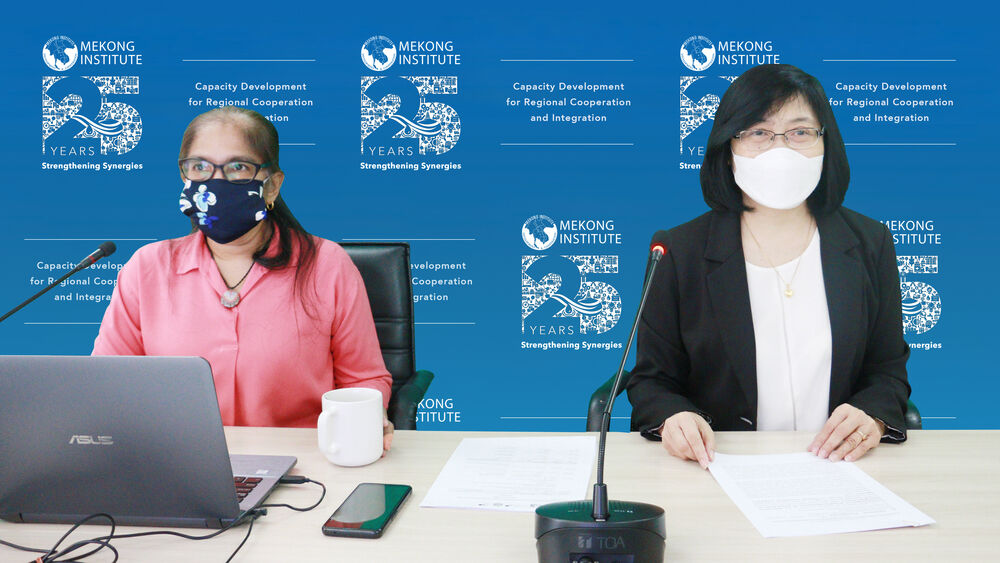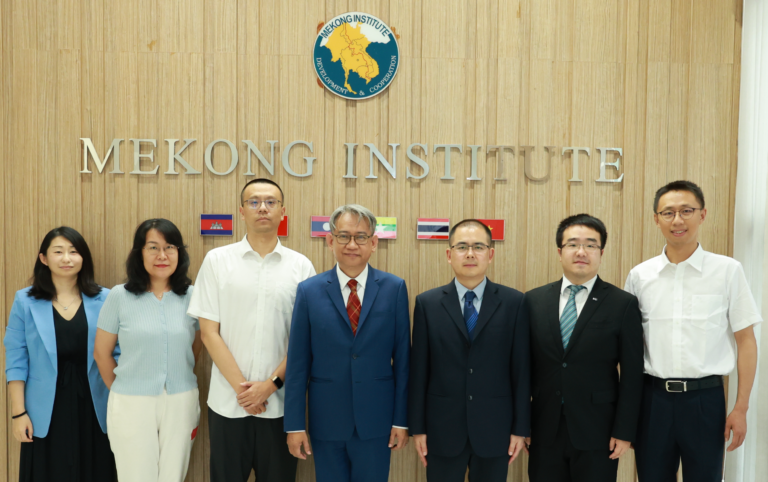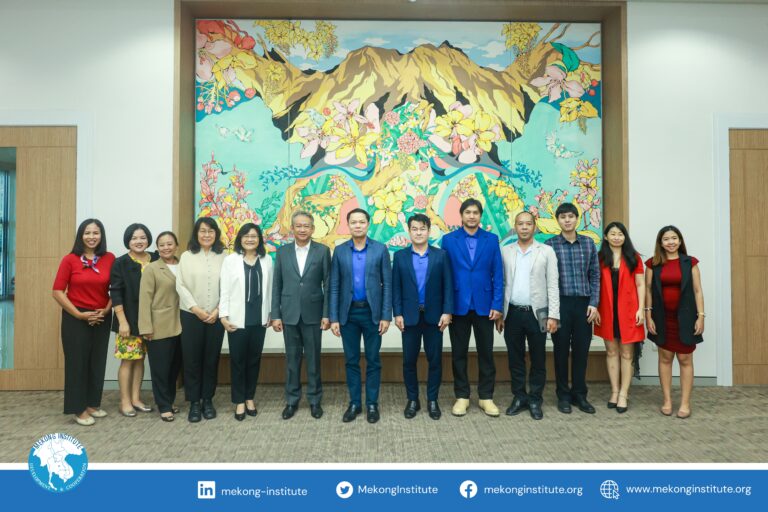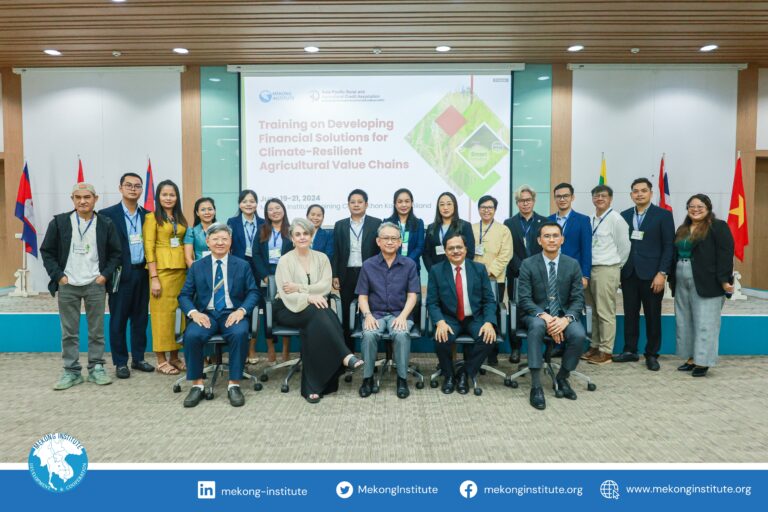To provide technical assistance through human resources development in national quality infrastructure for agri-food safety and trading standards, the Mekong Institute (MI), in collaboration with the Thailand International Cooperation Agency (TICA), organized the international training program on ‘Food Safety Quality Infrastructure for Market Access for Developing Countries’.
Conducted via online platforms from March 14 to 25, 2022, the training is attended by participants from Africa, Central Asia, Latin America, Middle East and North Africa, South Asia, and Southeast Asia. The participants are coming from government and agri-food private sector with responsibilities on food safety standards and agri-food trade standards compliance.
In her welcome message, Dr. Hataichanok Siriwadhanakul, Director of the Human Resources Development Cooperation Division, TICA, emphasized that the training program will focus on international agreements and standards under the World Trade Organization (WTO) and other international bodies related to global trade in food and agriculture products. She said that it is important to strengthen national infrastructure to support food safety control, compliance with laws, international regulations, and trade facilitation.
the knowledge and know-how that the participants will gain from the training will be useful and practical for their respective countries and in carrying out their respective work.
She proudly shared that, through the training program, Thailand’s experiences and best practices related to the course will be shared and discussed. She believed that
Ms. Maria Theresa S. Medialdia, Director of MI’s Agricultural Development and Commercialization (ADC) Department, shared in her opening remarks the challenges that the agri-food trade landscape is facing, especially with the impacts of pandemic and climate uncertainties. She said that the training program is a good opportunity to address these issues, including those related to human technical capacity, evolving ecosystem of standards setting, and agri-food trade disruptions.
Ms. Medialdia stressed that “training programs such as this one will provide constant support to strengthen knowledge and skills on agri-food trade facilitation among the public and private sector institutions.” She elaborated that aside from providing information on the evolving environment of agri-food trade and its major players, this training will also tackle the ways to navigate the complex agri-food trade measures in order to facilitate compliance, particularly among the micro, small and medium-sized enterprises .
In the course introduction, Ms. Ratna Devi Nadarajan, Program Specialist of ADC, shared that after the training program, the participants are expected to have an enhanced knowledge on the principles and requirements related to food safety in international agri-food trade. She provided the overview for the 10-day training course covering topics, such as the international agri-food trade based on the WTO SPS (sanitary and phytosanitary) and Technical Barriers to Trade agreements, international best practices in food legislation and inspection, the national quality infrastructure, and the international standards bodies for agri-food trade facilitation.







